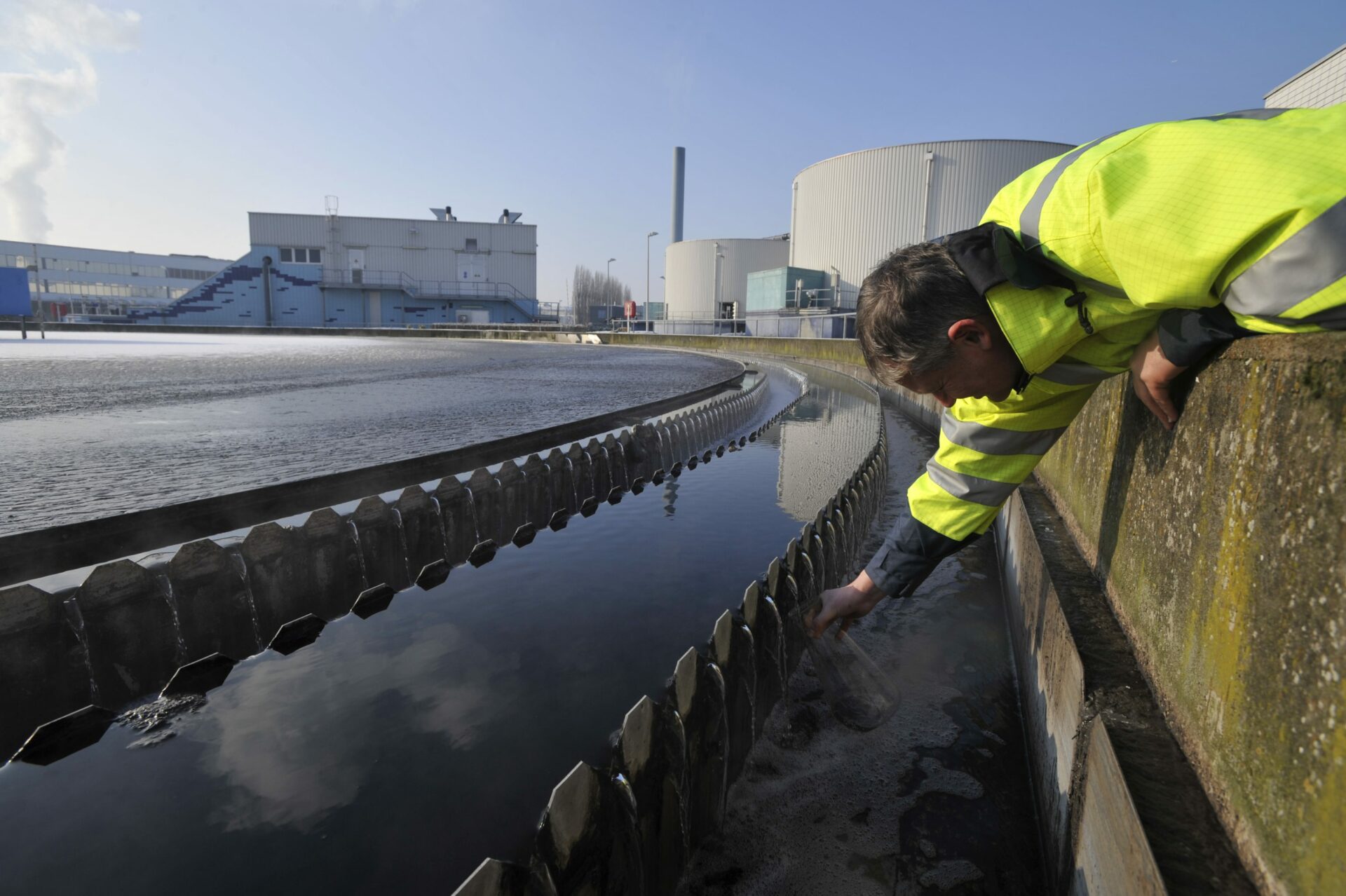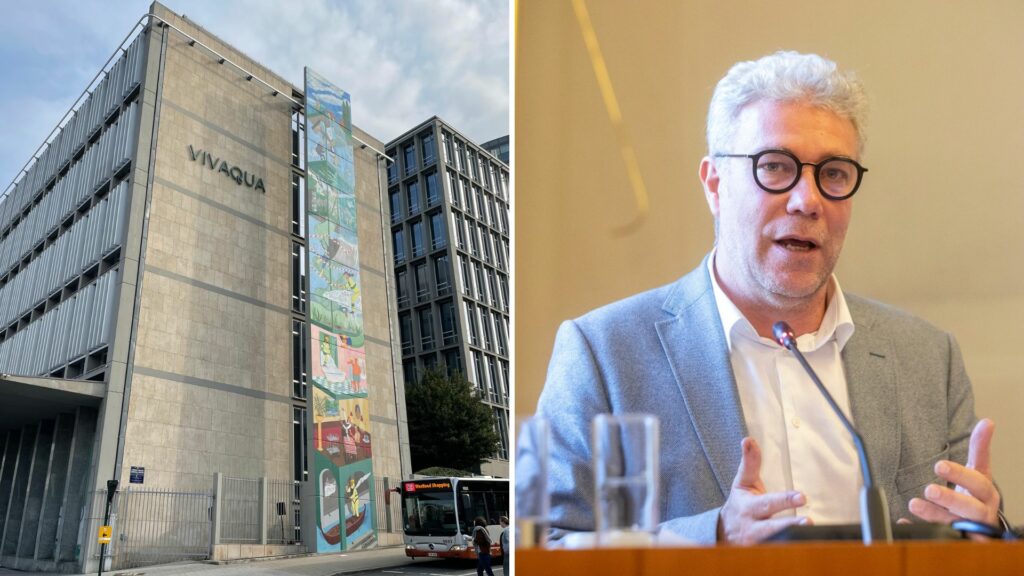Brussels Minister for the Environment, Alain Maron, has responded to concerns regarding the safety of the region's drinking water in the wake of the developing PFAS pollution issue.
As confirmed earlier this week, Maron discussed the PFAS debate during the Environment Committee in the Brussels Parliament on Wednesday to answer questions from fellow MPs and shed clarity on the situation regarding reports that drinking water supplied by Brussels' Vivaqua from a Walloon basin contained PFAS levels above the permitted threshold in the region.
In the days leading up to the Committee, Maron repeatedly stressed that the water distributed in Brussels is of good quality and that Vivaqua has not detected any problems, meaning there is no cause for concern, a message he reiterated on Wednesday.
"As Minister for Water, I am responsible for standards and monitoring the quality of water collected and distributed in Brussels, where the future European standard has never been exceeded," he said.
He explained that, when PFAS became more commonly known as a pollutant after it was discovered at American multinational 3M's site in the Zwijndrecht, Vivaqua started carrying out checks on PFAS in tap water in people's homes at the request of Brussels Environment.
"The levels in the results were always negative in relation to the future European standard of 100 ng/l," he noted, adding that all residents of Brussels can find information and the results of the tests carried out monthly on each water reservoir supplying tapwater on the Vivaqua website by entering their address.
"Vivaqua's in-house laboratory also requests analyses of the 20 PFAS from its external partners every month. In Brussels, the results of these analyses are always below 100ng/l for the sum of the 20 PFAS," Maron said.
Providing timeline
In his response, Maron also detailed a timeline of the incident, starting with the issue of the water in the Flemish city of Halle being polluted with PFAS. It was first detected by analyses carried out by the region's water company De Watergroep in October and December 2022.
Flemish Environment Minister Zuhal Demir drew attention to this matter in light of the problems being reported on in Wallonia of PFAS-polluted drinking water. She stated that she sent a letter in January to several Brussels and Walloon ministers, including Maron, about the fact that the water had exceeded the future European standards of 100 ng/l three to four months earlier.
Maron on Wednesday stressed that after receiving this letter, his office was informed by Brussels Environment that the Flemish Environment Agency (Vlaamse Milieumaatschappij) wanted to organise a meeting bringing together all parties involved to discuss the matter, which took place on 30 January.

Vivaqua's water purification station in Brussels. Credit: Belga/ Eric Vidal
Already at this point, Vivaqua had assured Maron that the future standard had not been exceeded in any drinking water in Brussels. However, he still organised a separate meeting with Vivaqua on 1 February to obtain all the relevant information, to ensure that water in Brussels was not affected and that the situation falling within the remit of the other two regions was being properly dealt with.
Here, Maron said he learned that Vivaqua had been contacted by De Watergroep on 16 January following the discovery of a "potential problem" at the end of 2022, after which Vivaqua carried out new measurements on 17 January and that the results received showed values below 100 ng/l.
On 23 January, a week before Demir contacted the various ministers, Vivaqua had also taken action to improve the situation by diluting the water from the Hainaut feeder with water from another quarry, which brought the sum of the 20 PFAS down to between 70 and 100 ng/l.
Vivaqua then used activated carbon, in addition to diluting the water, to solve the problem over the longer term, meaning the water was safe here from the second half of January 2023.
While Maron argued that it was not up to him to communicate the issue to the Halle population, he noted that De Watergroep had indicated its intention to inform them. He also stressed that the water that was polluted did not come from Brussels. "Given the structure of the Vivaqua network, the water distributed in Halle is not the same as that distributed in Brussels."
'Serious issue'
While the drinking water in Brussels has never been at risk, Maron did stress that pollution by PFAS is a serious and important issue for everyone's health. He also said that the first duty of politicians and companies like Vivaqua is to "respond to the concerns of the public, not to leave any doubt or misinformation on the subject."
"I understand that citizens are wondering about these facts and my first mission is to protect them as much as possible, as well as protecting the environment," he said.

Water Minister Alain Maron talks to the press at a session of the Chamber Commission Energy, Environment and Climate at the Brussels parliament in Brussels, Wednesday 15 November 2023. Credit: Belga / Hatim Kaghat
Maron explained that the decree transposing the EU drinking water directive into Belgian law is still being worked on. "On 10 November we received the Council of State's opinion on the draft amendment to the water framework ordinance, which can therefore be submitted to the government for final reading in the coming weeks," he noted.
This means it will be discussed in the Federal Parliament at the very beginning of 2024, enabling it to finalise the transposition by decree very quickly. "At present, all three regions are aiming for the same objective, which is set out in the EU Drinking Water Directive: not to exceed 100 ng/l for the sum of the 20 most polluting PFAS, with this threshold to be effectively imposed by 2026."
He added that in Brussels, this future standard has already de facto been reached and not exceeded and that he will propose the standard is imposed as soon as the decree is published to ensure the levels are not surpassed.
"I am in favour of adopting lower monitoring thresholds for Brussels and will therefore ask Brussels Environment and Vivaqua to work together on this issue, with a view to formally establishing them and agreeing on the consequences we will attach to them being exceeded."
Related News
- PFAS water pollution: Environment Minister plays down 'imminent health hazard'
- PFAS pollution in Vivaqua network: Is Brussels tap water still safe to drink?
On the matter in general, he said he was in favour of a gradual but general ban on PFASs at the level of their production as they are dangerous to health and the environment, disrupt the hormonal system and are even carcinogenic in some cases.
"It has been established that in our industrialised countries, PFAS are found in the blood of almost every individual. The only way to reduce them is first and foremost to stop spreading them. Now is the time to fight at all levels of power, and particularly at the European level."
Also on Wednesday morning, Demir announced that Flanders will be using the Belgian presidency of the European Union to keep PFAS high on the agenda.

